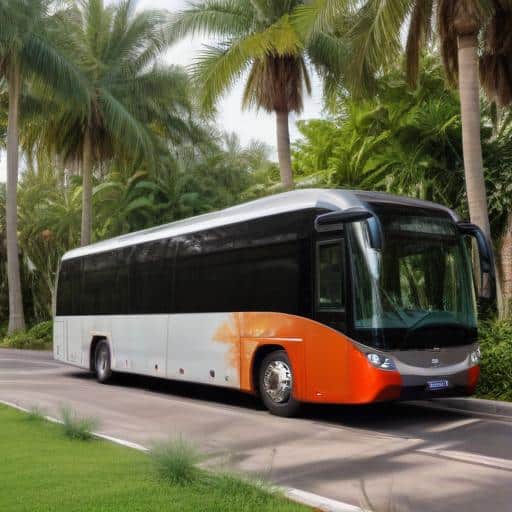Rosie Travel Group is set to expand its eco-friendly transport services with the arrival of a new fleet of electric tourist coaches, with the first two expected to be delivered in July. These 53-seater coaches will provide international visitors with a zero-emission hotel transfer service, aligning with the company’s objective to convert 50 percent of its transport fleet to electric by 2030. Currently, the coaches are being manufactured in China.
The new electric coaches will incorporate advanced battery technology, enabling fast recharging and a reliable range of 300 kilometers, all while offering spacious luggage capacity and luxurious interiors designed to meet Australian standards. This initiative is a partnership with BBCG, a leading coach manufacturer recognized for being the first Chinese firm to secure ADR (Australian Design Rules) approval, thus adhering to rigorous safety and design standards for usage on Australian roads.
Ken Lee, executive director of BBCG, expressed enthusiasm for the collaboration, noting the potential synergy between Rosie Travel Group and their advancements in transport technology. In a similar direction, Rosie Travel Group’s managing director, Tony Whitton, emphasized the necessity of adopting carbon footprint solutions for Fiji’s approximately 200,000 annual visitors. He believes that leveraging China’s expertise in electric vehicle technology along with Fiji’s abundant solar energy resources will be crucial in providing greener transportation alternatives.
Rosie Travel Group is already on the path to sustainability, having initiated its zero-emission journeys last year through luxury electric vehicle private transfers. The company is also investing in fast-charging solar panels, establishing that both their electric vehicles and newly introduced coaches will be fully powered by solar energy.
Brent Hill, CEO of Tourism Fiji, welcomed this development, highlighting the long-term benefits of reduced fuel costs and increased availability of charging infrastructure for electric vehicles in Fiji. He remarked on the high reputation of the selected vehicle brand and acknowledged China’s leading role in advanced electric vehicle technology.
This progressive shift towards electric transport not only enhances Fiji’s appeal as a sustainable tourism destination but also reflects a growing commitment among regional transport services to reduce carbon emissions and embrace cleaner energy solutions, paving the way for a more sustainable future.

Leave a comment